Creative Careers
Session 3:
Proper Leaders

Creative Careers is aimed at young people who want to work in the arts, the creative industries or as creative entrepreneurs.
Usually, Creative Careers sessions take place at the Barbican, but while our doors were closed we brought everything online, to help keep you feeling creative and engaged throughout these difficult times.
Introduction from Creative Careers' Joseph Gray:
'As Autumn sets in, and the challenging times keep on coming, we’re sticking with the online format for our third Creative Careers exchange of the series. We miss meeting you all face to face, and really hope you’re doing OK. It’s a pleasure to still be bringing you thought-provoking content to be enjoyed from the comfort of wherever you are.
For our latest installment, we’ve once again collaborated with some powerful voices from across the cultural landscape, this time asking three game-changing young leaders to share some reflections on their pasts, their presents and their futures. Bringing Ellie, Keturah and Shannie on board for this has been a real joy. They all speak from the heart, bringing honesty, depth and a refreshing dose of reality to their advice. Imagine if these three were your Careers team at school. Imagine that!
We were really delighted to commission on-the-pulse photographer, Bardha Krasniqi, for this piece. She linked up with our three collaborators in different pockets of London that mean something to them for the photos you see here and on Barbican’s Instagram page too. Amazing people, captured beautifully in spaces they love - we’re really proud of this one! Enjoy.'
Shannie Mears
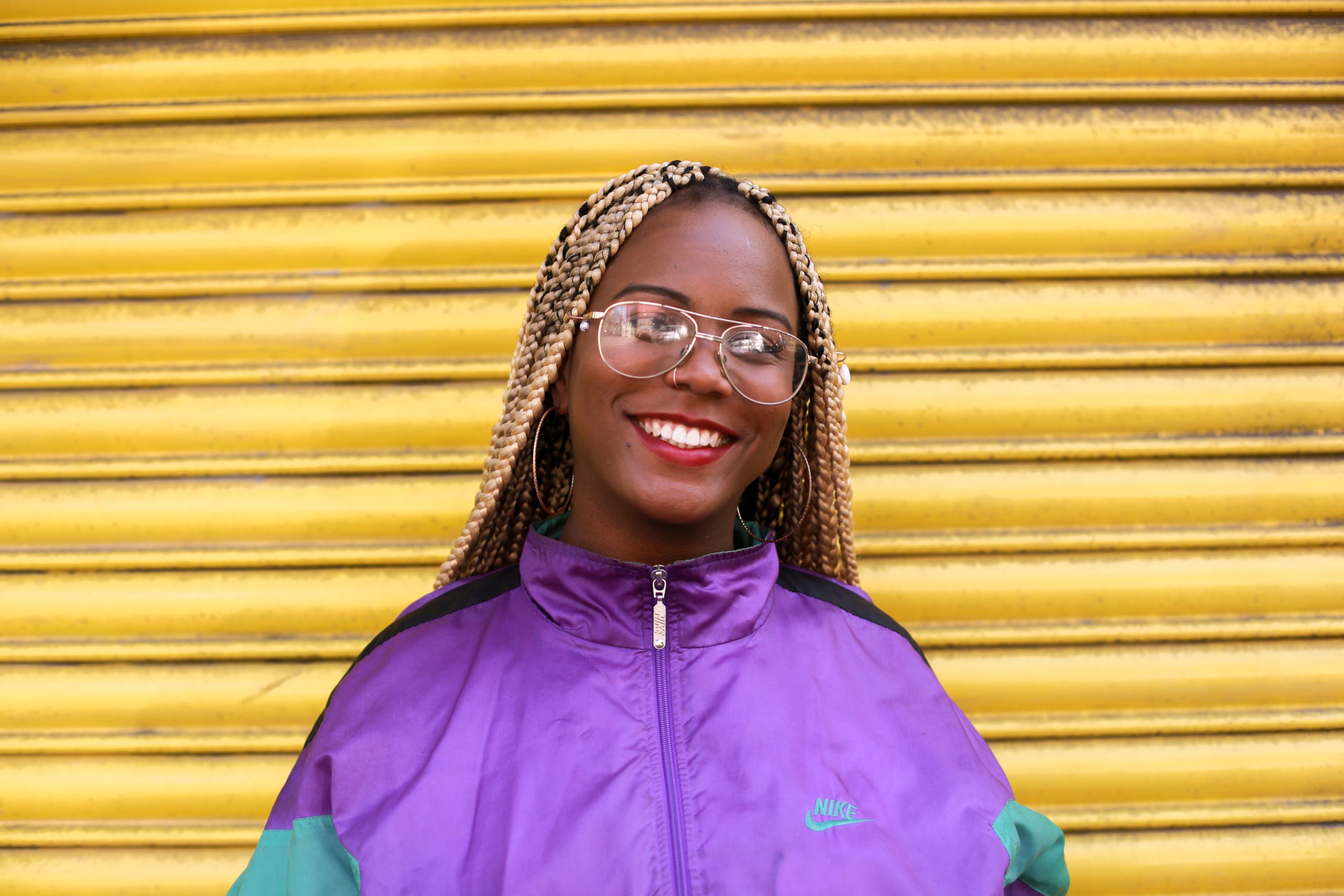
Meet Shannie...
Shannie Mears is a multifaceted young creative who is undoubtedly a future leader. A teacher since the age of 12, she knows the importance of nurturing skill sets and sharing knowledge. As a young black female operating in the world of advertising and media, Shannie sets a brilliant example on leadership, value, and self-truth. Her ability to immerse herself within culture, authentically drawing analysis and insights from it, allows her to recognise and connect amazing talent both within her industry and beyond. Shannie is co-founder of The Elephant Room.
Before //
‘Honestly, take a leap of faith, no matter who is already in front, and sadly but truly, no matter who you leave behind. You’re on your own time.‘
What are your earliest memories of the cultural touchpoints you now call work?
I was 11 when I joined my first ‘board’. I was part of decision-making from early on, leading within my community. I didn’t know that I would end up doing that more and more as I got older.
Whose work from your industry has really helped shape your own, and why?
I don’t think I have a single tastemaker that has influenced my work, I am genuinely influenced by a multitude of people, both old and young. From GUAP to Vanessa Kingori.
Now //
‘Constantly reflect on the person you are becoming, and make sure this is happening because you’re working on your own character, not just focusing on the things around you.‘
What is most important to you when it comes to your work today?
For me it's about my lasting impact; what did I do to positively change the current climate, and how has that helped make me better in the process.
Give an example of how you’ve positively responded to 2020’s pandemic for work.
2020 has been seriously unpredictable. The best thing I’ve done is that I’ve stayed sane. I’ve also created opportunities from very little, and I’ve worked on my side projects too, like Girls Let’s Talk.
Looking Forward //
‘Ask yourself, if you have no intention to teach, what is the point in learning?‘
Describe a piece of work you have on the horizon that you can speak freely about, and that you’re excited and proud to share with the world.
We are about to launch one month mentorships at The Elephant Room, ready for Black History Month, and I’m just so ready for people to build and support each other knowing it was an idea I brought to life.
Considering your particular space within the creative sector, where are the biggest opportunities coming up for young, ambitious people to focus their energies?
There’s opportunity everywhere, but the real opportunity, though clichéd, is with young people themselves. You can see that there’s a lot of people creating pathways and ventures for themselves, not waiting for approval or handouts. That’s the way forward. Create! Keep building!

Keturah Cummings
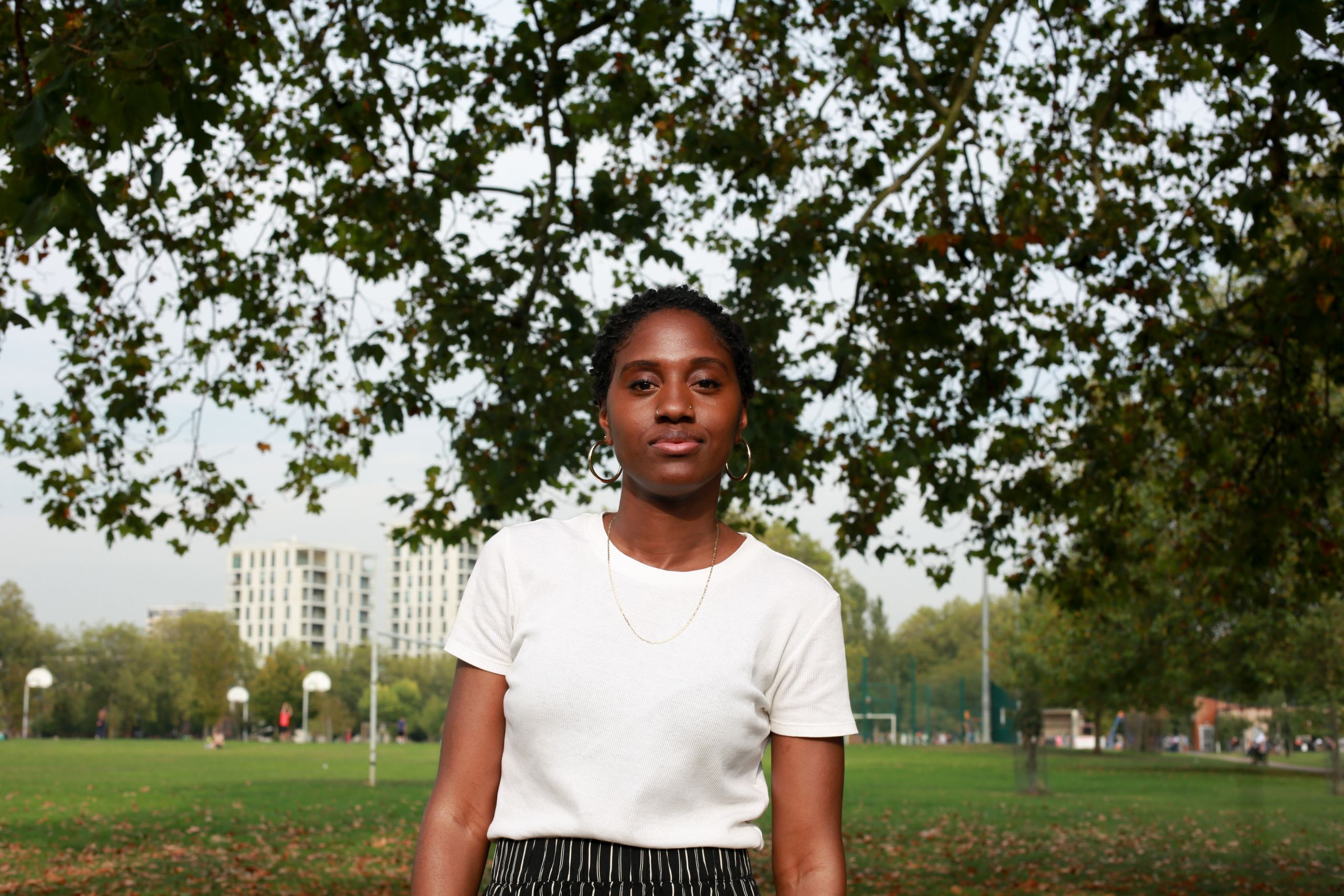
Meet Keturah...
Keturah Cummings is a huge advocate of ‘doing’ and of collaborating. She thinks ideas should be brought to life, regardless of the outcome. Having done a heck of a lot of doing and building over the past few years, her own agency, Forward Slash, is her latest construction. Before Forward Slash, she used to deliver music and social content at BBC Radio 1 and 1Xtra. Keturah’s other main squeeze is So Future - a platform created in 2016 for underground music and talent. The fact that Forward Slash is growing its work at a time of immense challenge for the creative industries is proof enough that their work is properly on point.
Before //
‘Don’t shut anything down before you’ve given it a go or assumed ‘it won’t work’. The process of ‘doing’ and ‘trying out’ is often more valuable than the outcome itself.’
What are your earliest memories of the cultural touchpoints you now call work?
Creating mix CDs and sharing them with friends was my first encounter of combining a love for music and a love for curation, with an interest in the ways and mediums to share what I’d curated.
Whose work from your industry has really helped shape your own, and why?
Vashtie Kola was the first ‘multi-hyphenate’ I came across. Seeing a successful Black woman DJ / Designer / Director / Businesswoman empowered me to keep exploring my own ‘multi’ career and on my own terms.
Now //
‘Change is inevitable and sometimes uncomfortable. Stay focused on your ‘why’ (i.e. your passion/ purpose/ mission in life) and it will help you respond to change in a more flexible and open way.’
What is most important to you when it comes to your work today?
I focus intently on impact. For everyone involved in delivering the project and the audience receiving it. What do they gain during the process and what do they get out of the project itself?
Give an example of how you’ve positively responded to 2020’s pandemic for work.
I’ve been looking at ways to create additional sources of income by using the skills and knowledge I already possess, and so my team and I have developed online courses to teach others how to do what we do.
Looking Forward //
‘Prioritise personal satisfaction over public recognition. Keep learning, exploring and getting comfortable with doing things on your own terms. Find enjoyment in the process as well as the outcome.’
Describe a piece of work you have on the horizon that you can speak freely about, and that you’re excited and proud to share with the world.
I’ve been working hard on an apparel line that is almost ready to launch. It’s an idea I’ve had for years, but never developed the concept until this year. I’ve really enjoyed the process and learned so much. I’m excited for it to (soon) be out in the world!
Considering your particular space within the creative sector, where are the biggest opportunities coming up for young, ambitious people to focus their energies?
Find your ‘tribe’ wherever they may be (physical spaces, online communities etc) and collaborate. Connect with those on a similar journey and create something together. Not so much for the outcome, but for mutual learning.
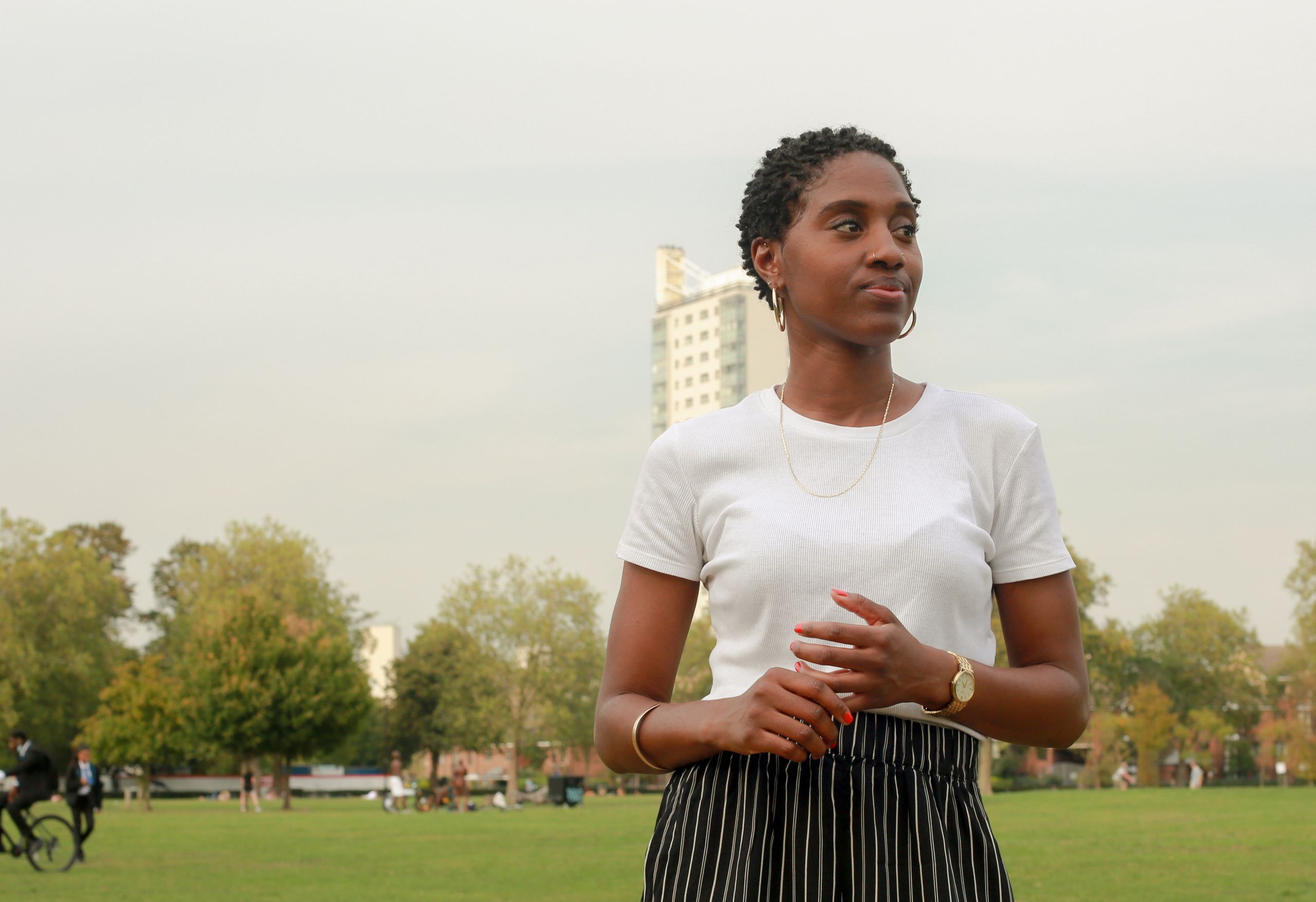
Ellie Pennick
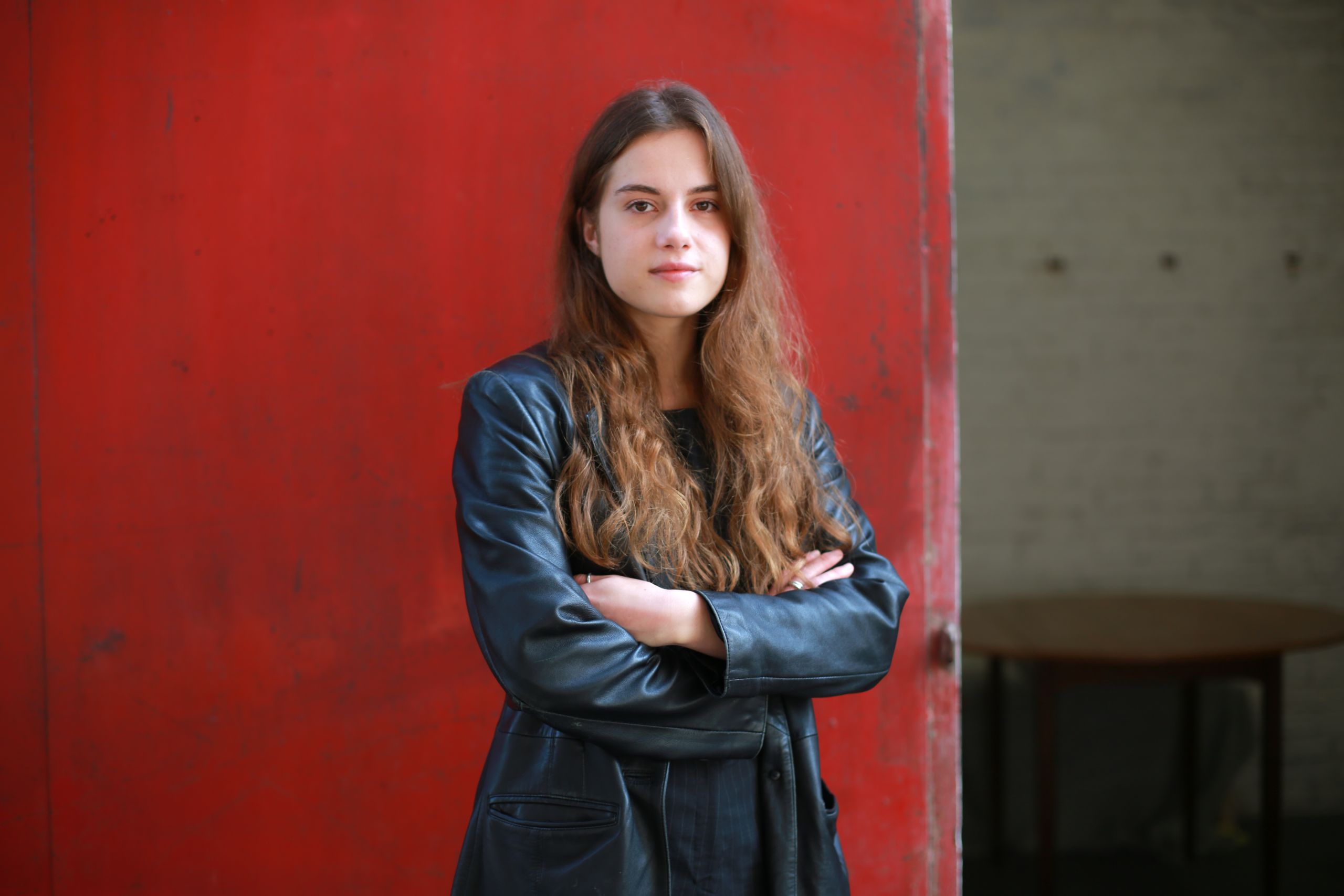
Meet Ellie...
Founder of Guts Gallery, Ellie Pennick is one of the youngest gallerists navigating the art world today. She is a queer working-class female artist from North Yorkshire. Ellie experienced first-hand inequality within the art system, but instead of folding herself into this structure, it spurred her on to create a business venture that benefits other struggling artists like herself. Many figures and institutions are scared to speak out about inequality in the art world, often in fear of their own precarious positions being compromised. Guts Gallery refuses to be silenced and is one of the most exciting things happening in art globally today.
Before //
‘Graft and keep your head down, but also make sure you have a second job for stability and rent money.’
What are your earliest memories of the cultural touchpoints you now call work?
I’m not from an art background at all, growing up I only ever visited a couple of galleries that were all free - but we were always surrounded by books and music. Coming from a working-class background it has always been encouraged to give it your all, despite your circumstances; which is essentially how Guts Gallery came to be.
Whose work from your industry has really helped shape your own and why?
Sadie Coles! In the 90s she was at the forefront (and still is) a part of a pivotal shift in the art world. She also donated money to my opening show, so without that, I wouldn't be where I am now. Having someone from her position help and support a smaller gallery like my own is unheard of. Also, a special mention to Del Boy who is a working-class hero.
Now //
‘Graft! Keep your head down, and stay humble’
What is most important to you when it comes to your work today?
Looking at the inequalities of the art world has been an important driver for me in shaping the gallery. The current model is outdated and doesn’t suit a modern context. With Guts, I have reformed that model, flipping the percentages of representation; creating a safe space for underrepresented and marginalised groups, fair pay, supporting charities, taking lower percentages on art sales, making art more accessible for wider society not just for the few.
Give an example of how you’ve positively responded to 2020’s pandemic for work.
Gallery openings have been affected by the spread of coronavirus. Many art-related events, including ours, have either been cancelled or postponed, causing a large economic impact on artists and smaller galleries. We wanted to challenge this, putting our ethos of supporting underrepresented contemporary voices into action by navigating this set back through a digital Instagram exhibition. Instead of panicking, we navigated this situation and it actually kicked off!
Looking Forward //
‘F*ck it you have got nothing to lose’
Describe a piece of work you have on the horizon that you can speak freely about, and that you’re excited and proud to share with the world.
Guts and Soft Punk Magazine are proud to collaboratively present, 'It's 2020 For F*ck Sake', a thirteen artist, back-to-back solo exhibition marathon, running from 24 September–21 December 2020 in a railway arch under Haggerston Station.
Born from a desire to refuse the conditions of silence, paralysis, and erasure brought on by our current social and political climate, this series has been conceived to exhibit some of the most promising practitioners of the new generation, creating space for display, experimentation, and artistic ownership in an otherwise compromising market.
Actively aware of the scarcity of shows for underrepresented emerging artists, each artist exhibiting has been given full creative license. This is an exhibition marathon founded in community — while each artist has a solo show, the broader ethos is one of collaboration, accessibility, progress, and collective shouldering of one another.
Considering your particular space within the creative sector, where are the biggest opportunities coming up for young, ambitious people to focus their energies?
There are hardly any opportunities, which is why I think now is the time to shoulder, create dialogue, and collaborate with each other - which is what brings about change. It’s a shift that needs to happen in 2020.
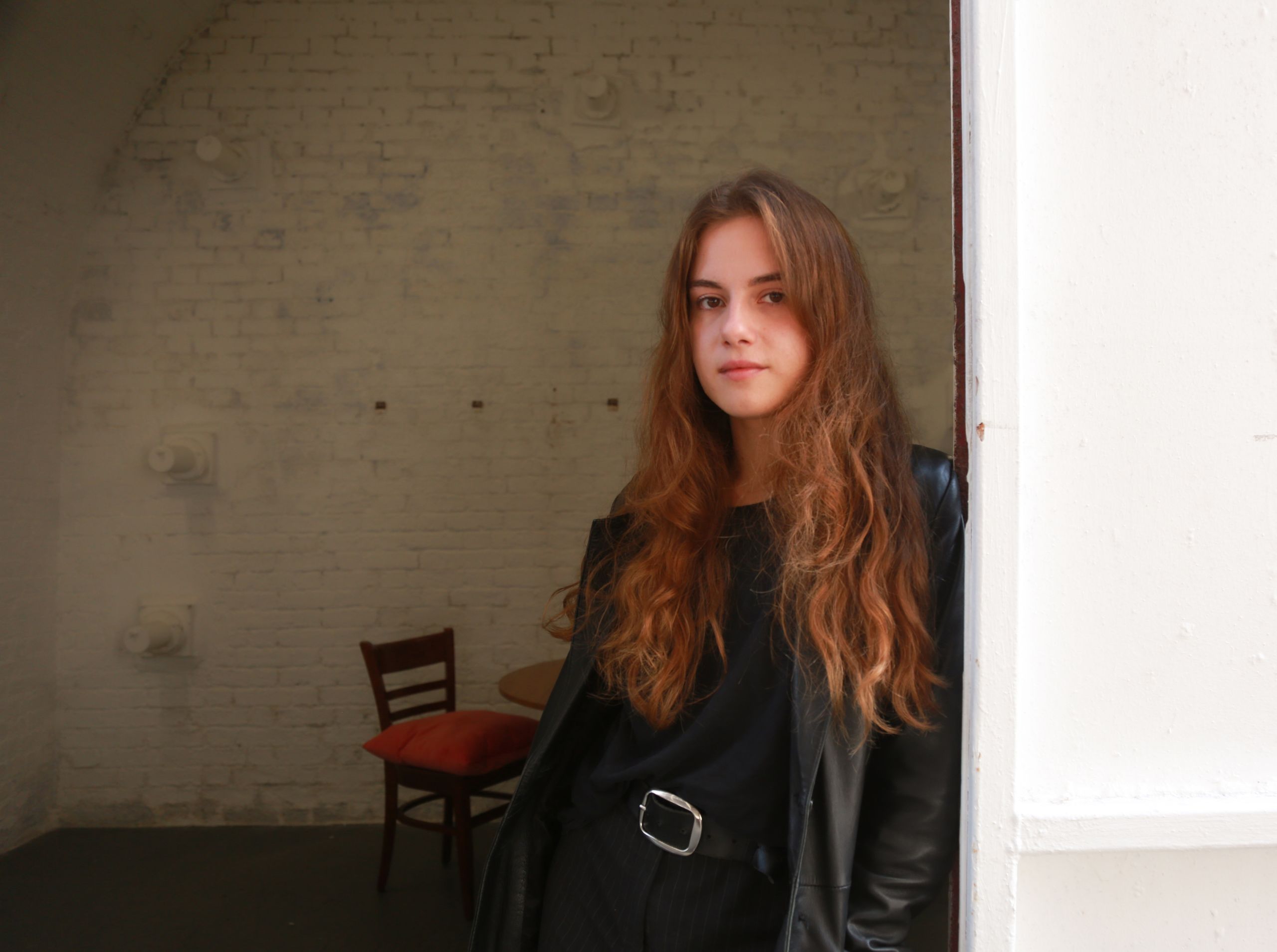
Photography
Bardha Krasniqi is an Albanian artist, photographer, and casting director based in London. Across disciplines, she always aims to capture people, places and moments in time that naturally inspire. Her brilliant eye for detail really benefits her role with Road Casting day in, day out, and she feeds this into her photography too, as you can see from these intimate portraits for Creative Careers. Bardha has recently worked with key players in London’s underground jazz continuum, Yussef Dayes and Tom Misch - fulfilling a lifelong goal to see her work on a record sleeve.
Joseph Gray
Joseph works as a consultant across youth, public and third sector spaces, with a commitment to social mobility and with a strong focus on work being genuinely useful. He currently works with Barbican, Guildhall School of Music & Drama, Bloody Good Period, and is a trustee with Sour Lemons. Linkedin
Get involved

If you're someone who works or wants to work in a creative industry, join us for our Creative Careers sessions. Each session introduces you to leading creatives and artists to discuss the state of the industry and how you can fit into it, shape it and make it work for you.
We are keen to experiment with new ways to get you more involved in future Creative Careers sessions - if you'd like to be considered or have an idea for a collaboration, please contact creative.learning@barbican.org.uk. Creative Careers is presented jointly by the Barbican Centre and the Guildhall School of Music & Drama.
Join Young Barbican to be the first to know about the latest sessions and resources.
Young Barbican is our free scheme for 14-25 year olds offering discounted access to unmissable art and entertainment as well as exclusive events and creative opportunities.
More Creative Careers Sessions

About Barbican Guildhall Creative Learning
Barbican Guildhall Creative Learning is a creative alliance pioneering new models for cultural learning across the art forms. Our mission is Creative Skills for Life and every year we deliver more than 40 programmes and events alongside 150 partners to over 22,000 participants.
The Barbican Guildhall Creative Learning programme is made possible through the contributions of our generous supporters, including Arts Council England.